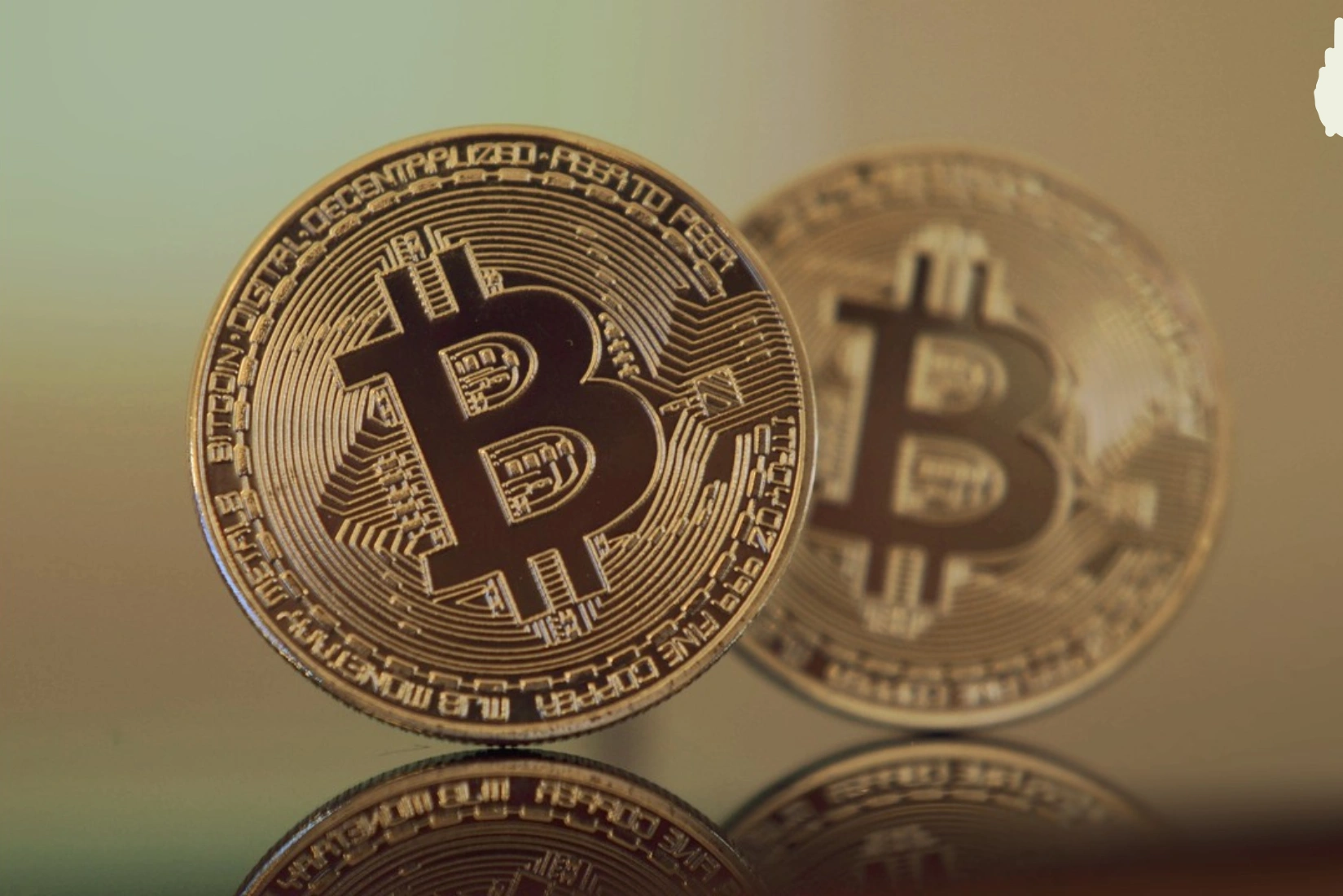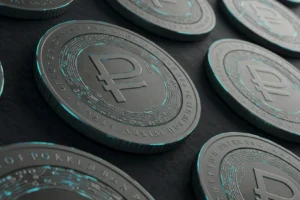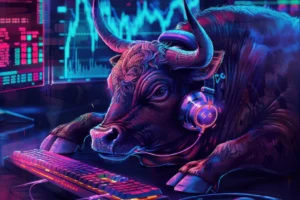Bitcoin 101: Why Digital Currency Is More Than Just a Trend
Bitcoin 101: Why Digital Currency Is More Than Just a Trend
Bitcoin 101 isn’t just a tech manual or a crash course in cryptocurrency—it’s the first step into a new way of understanding money.
For many people, Bitcoin still sounds like something reserved for coders, traders, or tech enthusiasts. But the truth is, it was built for anyone with an internet connection. If you’re new to this world and wondering why people keep talking about Bitcoin like it might change everything, you’re not alone.
This guide offers a beginner-friendly perspective on Bitcoin—what it is, why it matters, and how you can begin to understand it without needing a computer science degree.
So, What Is Bitcoin?
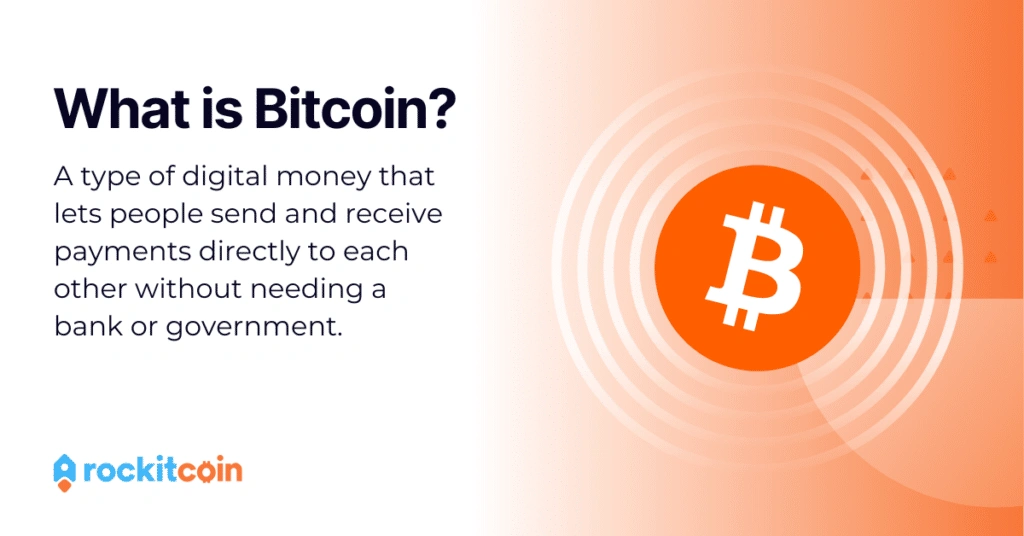
Credit from RockItCoin
In simple terms, Bitcoin is digital money. You can’t hold it in your hand like a dollar bill, but you can use it to buy things, send it to friends, or store it for later use.
Unlike regular money issued by governments (also called fiat money), Bitcoin isn’t managed by any central authority. There’s no Federal Reserve or national bank pulling strings behind the scenes. Instead, it’s powered by a network of computers, working together, following rules written in open-source code.
Bitcoin is stored and moved using something called a blockchain—an open, public record of transactions that anyone can view, but no one can easily alter. Every time someone uses Bitcoin, that transaction is verified, timestamped, and recorded in this shared history. That’s part of what makes Bitcoin trustworthy, even though it’s not backed by any government.
A Currency Without Borders or Banks
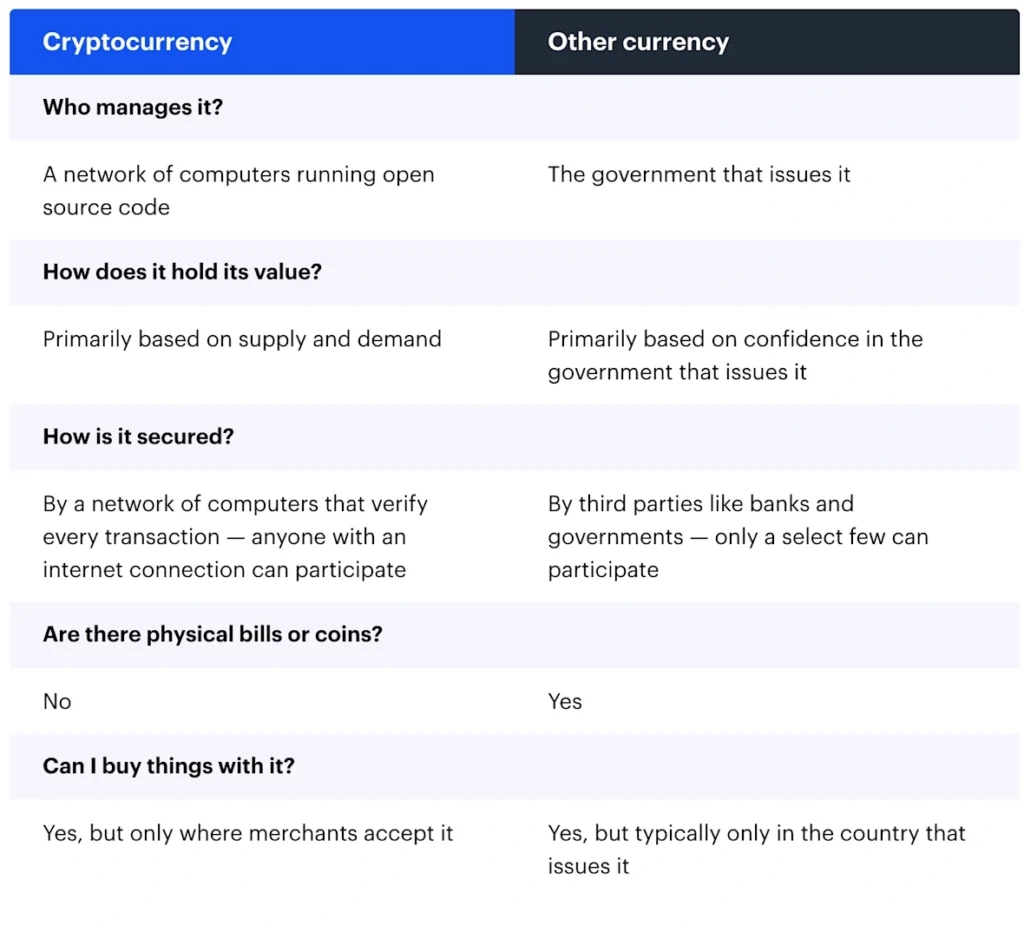
Credit from Coinbase
One of Bitcoin’s most defining features is that it doesn’t rely on banks to move money around. That means you can send Bitcoin to someone on the other side of the world without needing a bank account or approval from a third party.
In places where banking systems are unstable or inaccessible, this is more than just a convenience—it’s a lifeline. For migrant workers sending remittances, for citizens dealing with hyperinflation, or for anyone living outside of traditional financial networks, Bitcoin offers a new form of financial independence.
It also operates 24/7. No business hours. No national holidays. Just the internet, and a shared digital ledger that keeps track of everything.
How Is Bitcoin Created? The Basics of Mining
New Bitcoins aren’t printed—they’re mined. But this isn’t physical digging. It’s computational.
Every few minutes, computers on the Bitcoin network race to solve complex mathematical puzzles. The first to solve it earns a reward: a small number of newly minted Bitcoins. This process is known as proof of work, and it’s how the system stays secure and self-regulating.
As more people mine, the puzzles get harder. And over time, the number of Bitcoins released is cut in half—an event known as a halving, which happens roughly every four years. Eventually, the total number of Bitcoins in existence will cap at 21 million.
This fixed supply is one reason some people view Bitcoin as a kind of digital gold—rare, valuable, and immune to inflationary printing.
How Do You Use Bitcoin?
To use Bitcoin, you need a wallet—a digital tool that stores your Bitcoin and allows you to send or receive it. Each wallet has:
- A public address, which others can use to send Bitcoin to you
- A private key, which proves you own the Bitcoin in your wallet (never share this)
There are many kinds of wallets: mobile apps, browser extensions, physical hardware devices, and even paper backups. For beginners, a user-friendly mobile or web wallet is often the best starting point.
To buy Bitcoin, most people use crypto exchanges—online platforms where you can trade local currency for Bitcoin. Some people also receive it as payment for work or services.
Why Does Bitcoin’s Price Go Up and Down?
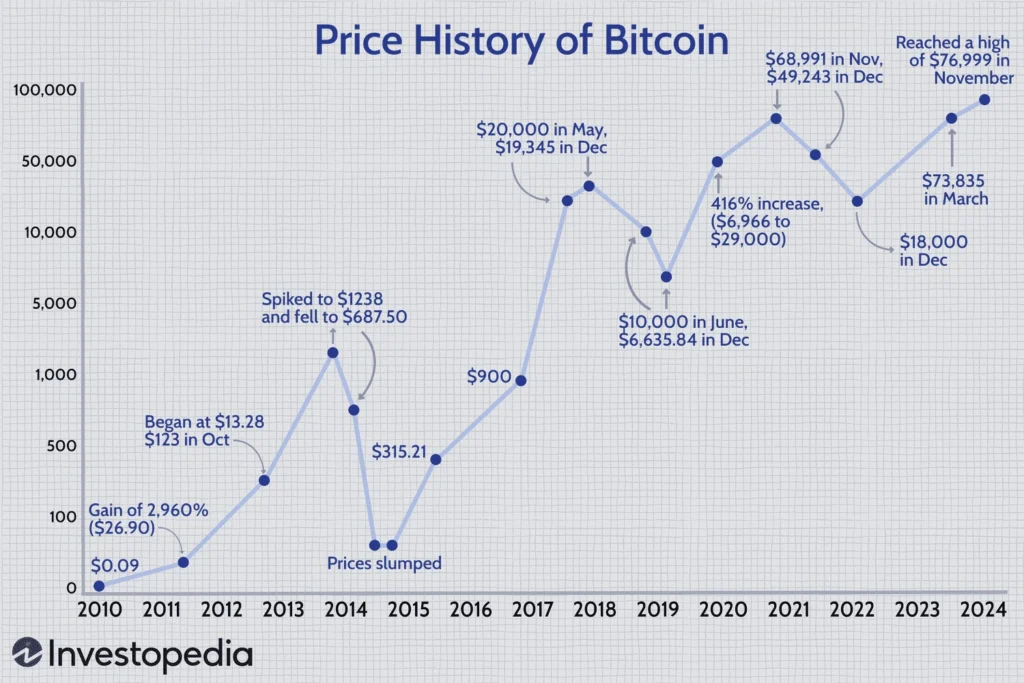
Credit from Investopedia
You’ve probably heard headlines about Bitcoin’s dramatic price swings. One month it’s skyrocketing, the next it’s plunging. Why?
Unlike traditional currencies, Bitcoin doesn’t have a central authority managing its value. Its price is set entirely by the open market—what buyers are willing to pay and what sellers will accept.
That makes it highly responsive to:
- News events (regulations, bans, or endorsements)
- Market speculation
- Supply and demand shifts
- Broader economic trends
Volatility can be nerve-wracking for beginners, but it also reflects the fact that Bitcoin is still a relatively young asset in a constantly evolving space.
What Can You Actually Do With Bitcoin?
While many people buy Bitcoin as a long-term investment, it can also be used in everyday life. Some examples include:
- Online retailers that accept crypto
- Freelancers getting paid in Bitcoin
- International money transfers
- Donating to non-profits in restrictive countries
It’s still not as widely accepted as credit cards or cash, but adoption is growing. Some governments and companies are even exploring ways to build Bitcoin into public infrastructure and payroll systems.
Bitcoin 101: Is Bitcoin Legal? Is It Safe?
In most countries, Bitcoin is legal to own and use, though regulations vary. Some governments encourage innovation, others take a stricter approach. Before buying or using Bitcoin, it’s smart to check your local laws.
When it comes to safety, the Bitcoin network itself is highly secure—it’s never been hacked. However, individuals can still fall victim to phishing attacks, scams, or lost wallet passwords.
Storing Bitcoin safely is about personal responsibility:
- Use reputable wallets and exchanges
- Enable two-factor authentication
- Store backup phrases offline
- Avoid clicking suspicious links or sharing private keys
Bitcoin 101: Why Does Bitcoin Matter?
Whether or not Bitcoin replaces traditional money is still up for debate. But its creation has already pushed the world to reimagine how money works in the internet age.
It challenges the idea that we must rely on central banks or large institutions to move or store value. It introduces the possibility of financial systems that are transparent, programmable, and open to all.
And for many, it represents more than a new kind of money—it’s a way to participate in a global financial experiment that’s still unfolding.
Bitcoin 101: Wrapping It Up
If you’re just beginning your journey, this Bitcoin 101 guide is only the first step. The Bitcoin world is vast, with its own culture, tools, risks, and philosophies.
But don’t feel pressured to “get in” or become an expert overnight. Bitcoin isn’t just about buying a coin—it’s about understanding how digital tools might change the way we think about value, ownership, and trust.
So take your time. Read. Explore. Ask questions. In a financial world that’s increasingly digital, learning about Bitcoin isn’t just optional—it’s part of keeping up.

